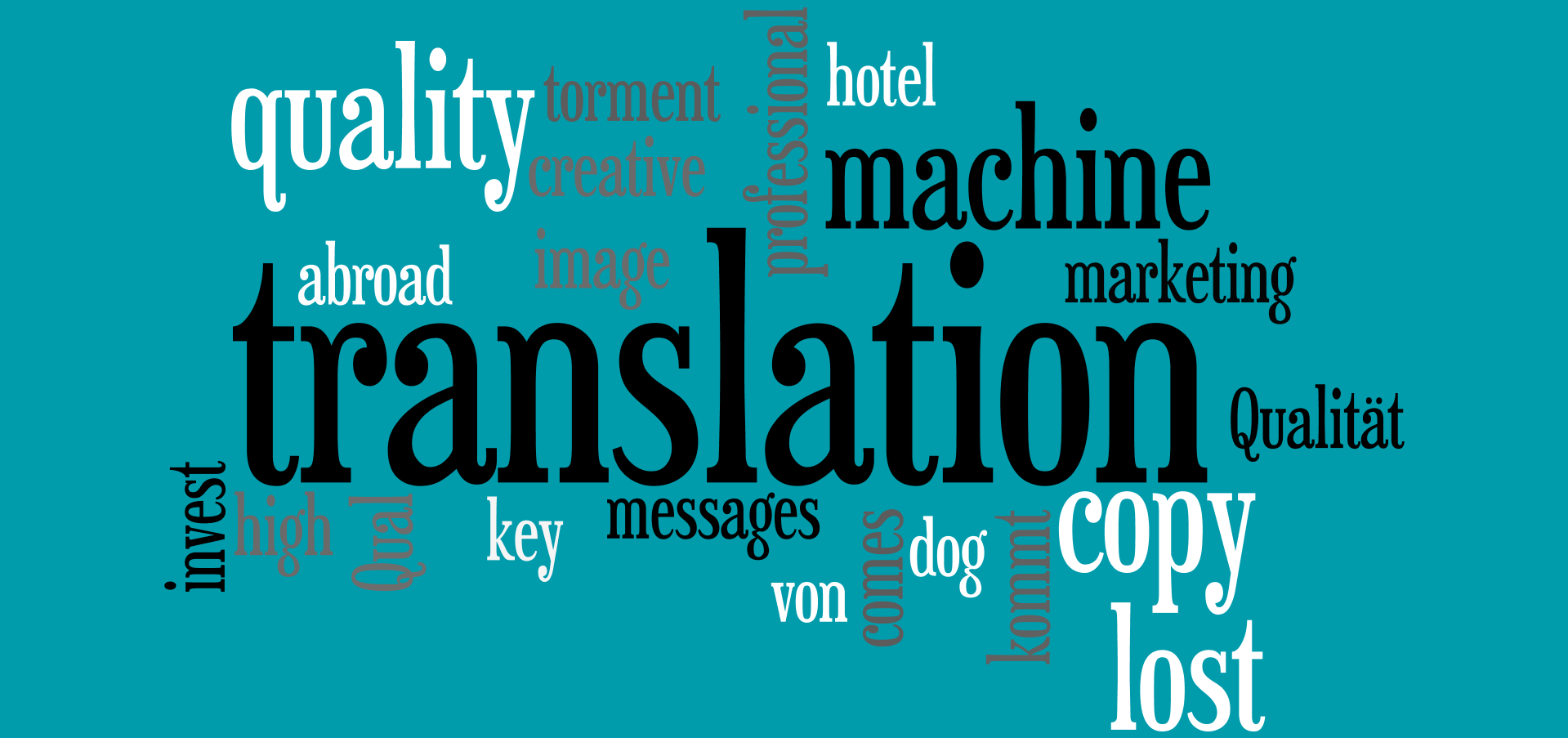Don’t let your marketing message get lost in (machine) translation
Have you ever wondered whether you could use machine translation to translate your website into other languages? After all, it would save you a lot of money and your website visitors would get ‘the general gist of your offering’. But is that enough to entice potential customer to buy from your website?
“Qualität kommt von Qual” – a popular German phrase for students of writing and journalism and one of those sentences that will never sound quite right in literal translation. Google Translator suggests: “Quality comes from torment”. The meaning is correct, but the word play is lost. This is a typical example of the limitations of machine translation.
Machine translation can be useful
That’s not to say that machine translation should be entirely disregarded. Statistical machine translators such as Google Translator work just like the search engine and source their translations from millions of documents on the web, albeit regardless of quality. It is a free and fast service, which will provide a general overview of your offerings in another language. The University of Bristol for example uses Google Translator to translate their website into various languages and gives a legitimate reason for their choice: “By having Google Translate on our website, we are signalling the fact that we want to reach out and communicate as widely as possible.”
When it comes to marketing copy, key messages could be lost
The real limitations of machines become obvious when it comes to the translation of marketing copy. Machine translators cannot usually translate phrases or metaphors, which are frequently used in creative copy, in a way that makes sense in the target language. They are not aware of the fine nuances of different languages and most importantly; they try to mimic, but do not really know any grammar. In its original language marketing copy is usually very carefully crafted to animate the reader and speak to its audience. This spark as well as the key messages could be entirely lost in machine translation. In some cases, a machine translation can even damage your brand. Imagine, for example, you’re the marketing manager of a dog-friendly hotel in the southwest of England and Google Translator turns your selling point into the German version of: “This hotel is a dog.” (Real-life example!!)
A high quality translation will present your company in the right light
To achieve the same high quality that your original copy has and really engage with a new audience and potential customers abroad, you will need a professional translation. A good translation will not only reflect well on your company’s image abroad. Customers will also be much more likely to understand, trust and buy your products or services. Professional translators ensure that your copy sounds just as creative and engaging in your target language and use their expertise of your target culture to bring your marketing messages across in the right tone of voice.
Quality doesn’t have to be “torment”, but it doesn’t come free either. Quality comes at a price and a high quality translation is as much a labour of love as your carefully crafted original copy. Professional translation is certainly an investment – but particularly for marketing copy, it also comes with a good ROI.
